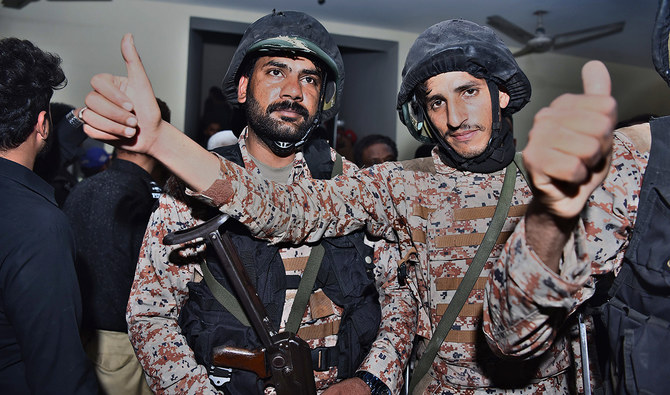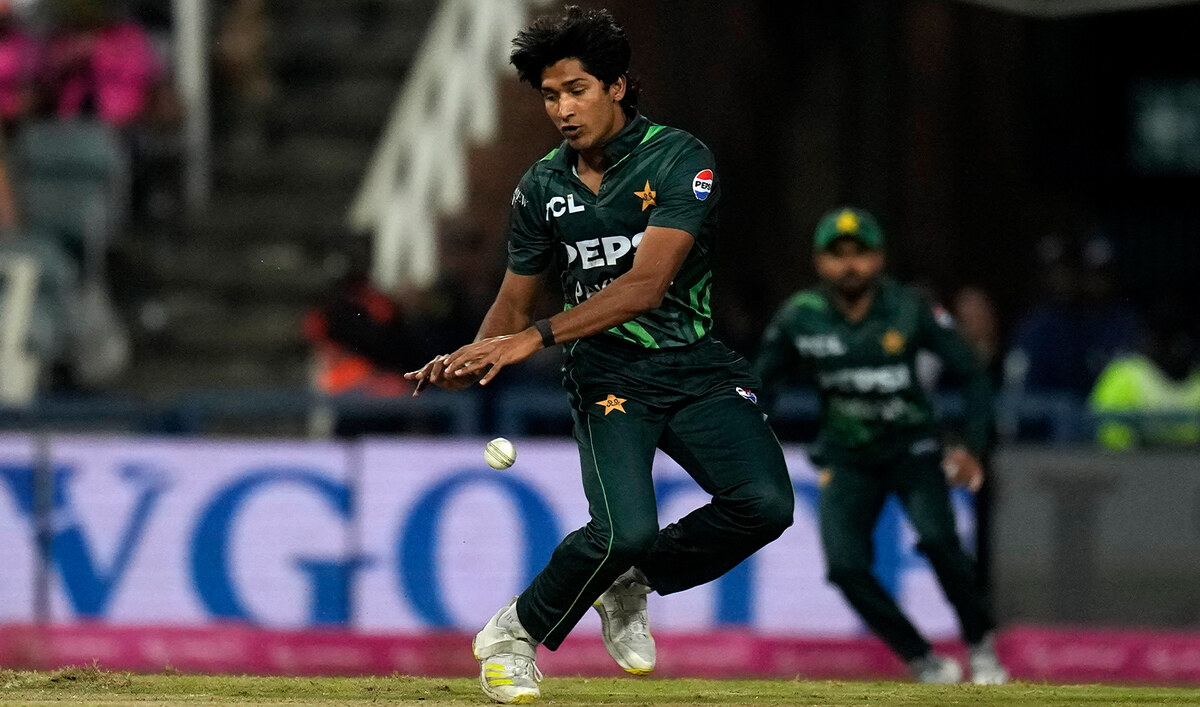KARACHI: Security forces killed three militants who targeted Karachi police chief’s office while forcing their way into the building on Friday evening, confirmed a senior official, as heavy exchange of fire continued to take place for several hours at the government facility.
Security forces – including police, paramilitary Rangers and the army – launched a counteroffensive shortly after reports emerged that a group of heavily armed militants had breached the security of the building in a bid to target the people inside.
The attack, which was claimed by Pakistani Taliban, was launched amid a surge in militant violence in the country and led to the death of three security personnel and a sanitation worker employed by the police.
“Three terrorists attacked the KPO [Karachi Police Office] but the forces – the army, police and Rangers – eliminated them all with their quick response,” Maqsood Ahmed Memon, additional inspector general of Special Security Unit, told Arab News while adding that the militants were equipped and well prepared.

Police officers stand in the aftermath of an attack on a police station in Karachi, Pakistan February 17, 2023. (Photo courtesy: REUTERS)
He added that while two people lost their lives at the beginning of the attack, two more security personnel were “also martyred during the operation.”
This was also confirmed by a spokesperson of Jinnah Hospital who said two Rangers along with a policeman and one sanitation worker were killed during the incident.
He added that 17 people were also injured and brought to the medical facility.
A police statement released after the operation said one militant died after his suicide vest exploded in police firing while two others were killed due to gunshot wounds.
Earlier, additional inspector general police Javed Alam Odhu called the incident an “organized attack” in a brief statement while confirming that his office had been targeted.
Deputy inspector general police Irfan Baloch said the attackers entered the police precinct from the back side of the building.
“At least six terrorists are present at the building,” he informed while sharing initials reports. “Heavy contingents of police and paramilitary rangers have also arrived.”

Volunteers carry an injured paramilitary soldier to a hospital following an attack on a police compound in Karachi on February 17, 2023. At least seven people were killed when a Pakistan Taliban suicide squad stormed a police compound in the port city of Karachi, with a gun battle raging for hours as security forces went floor-to-floor through an office building in pursuit of the assailants. (Photo courtesy: AFP)
Sindh Chief Minister Murad Ali Shah took notice of the attack while asking the authorities to “immediately arrest” the attackers.
“The attack on Karachi Police Chief’s office is not acceptable under any circumstances,” he was quoted in a statement issued by his office. “I want a report of the incident from the concerned officer as soon as possible.”

A plainclothes police officer stands beside the bullet-riddled walls after security forces conducting operation against attackers at a police headquarters, in Karachi, Pakistan, Friday, Feb. 17, 2023. Militants launched a deadly suicide attack on the police headquarters of Pakistan's largest city on Friday, officials said, as the sound of gunfire and explosions rocked the heart of Karachi for several hours. (Photo courtesy: AP)
Prime Minister Shehbaz Sharif also reacted to the development, saying it was vital to use full state power and display national unity to deal with the “menace of terrorism.”
He also noted the people of Pakistan stood with the security forces in this war while praying for the recovery of those who got injured in the attack.




















